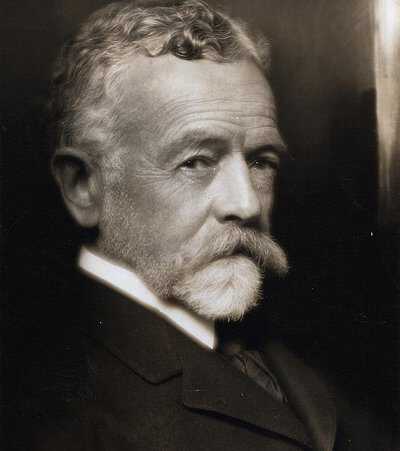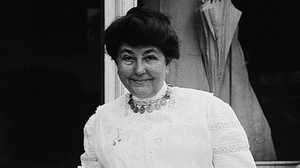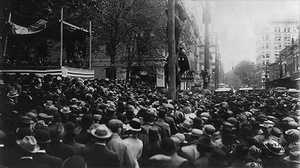Henry Cabot Lodge

If Woodrow Wilson had one implacable political foe, it was the Senator from Massachusetts, Henry Cabot Lodge. Lodge, heir to a shipping fortune, was a son of two wealthy Boston families - the Cabots and the Lodges. He was a blue-blooded Republican, conservative, not fond of immigrants, and determined to protect the sovereignty of the United States by defeating the league of Nations.
Lodge was born in May 1850 in Boston, although it was the seaside town of Nahant that he loved as a boy and came to represent in the House of Representatives. After graduating from Harvard in 1876 with the first Ph.D. in political science ever awarded by that institution, Lodge married a cousin, Anna Cabot Mills Davis, and was admitted to the bar. Rather than practice law, Lodge worked with his mentor Henry Adams in editing the North American Review, then joined the Harvard faculty. Adams described Lodge as "an excellent talker, a voracious reader, a ready wit, an accomplished orator, with a clear mind and a powerful memory..." But his patrician personality did not win him friends everywhere; Mark Hanna, a powerful Republican, called him the stubbornest man he had ever met.
Lodge entered Republican politics on the state level, and for a decade held various offices, including a seat in the Massachusetts House of Representatives. After two unsuccessful Congressional bids, Lodge won election to the U.S. House of Representatives in 1887, then made a successful run for the United States Senate in 1893 - occupying a post he would hold for 32 years. A party-line Republican, Lodge was a supporter of the gold standard, a high protective tariff, preparedness, an aggressive approach to global politics, and a Navy large enough to back it up.
When Woodrow Wilson became president, it was at the expense of Lodge's friend, Theodore Roosevelt. From the beginning, Lodge and Wilson were at odds over foreign policy. With the outbreak of war, a hawkish Lodge wanted Germany crushed and saddled with a harsh settlement. He also opposed Wilson's Fourteen Points peace plan. When Wilson brought the Treaty of Versailles home for ratification, Lodge, as Chairman of the Senate Foreign Relations Committee, insisted that specific and limiting changes be made to protect U.S. interests. Wilson would not compromise. Unable and perhaps unwilling to reach an agreement with Wilson, Lodge used his power and position to ensure the defeat of the treaty -- and prevent American participation in the League of Nations.
"The United States is the world's best hope," Lodge once said, "but... if you tangle her in the intrigues of Europe, you will destroy her powerful good, and endanger her very existence... Beware how you trifle with your marvelous inheritance -- this great land of ordered liberty. For if we stumble and fall, freedom and civilization everywhere will go down in ruin."
Henry Cabot Lodge suffered a stroke and died only nine months after Wilson, in November 1924.







